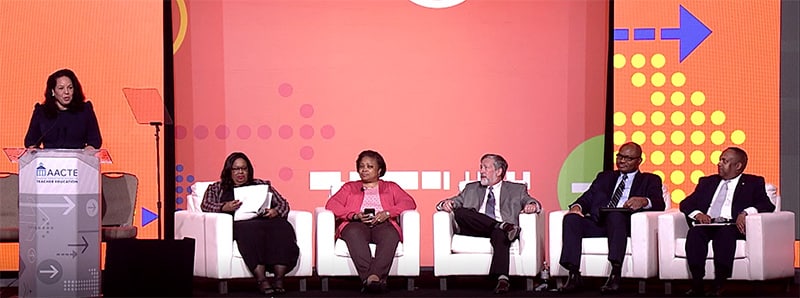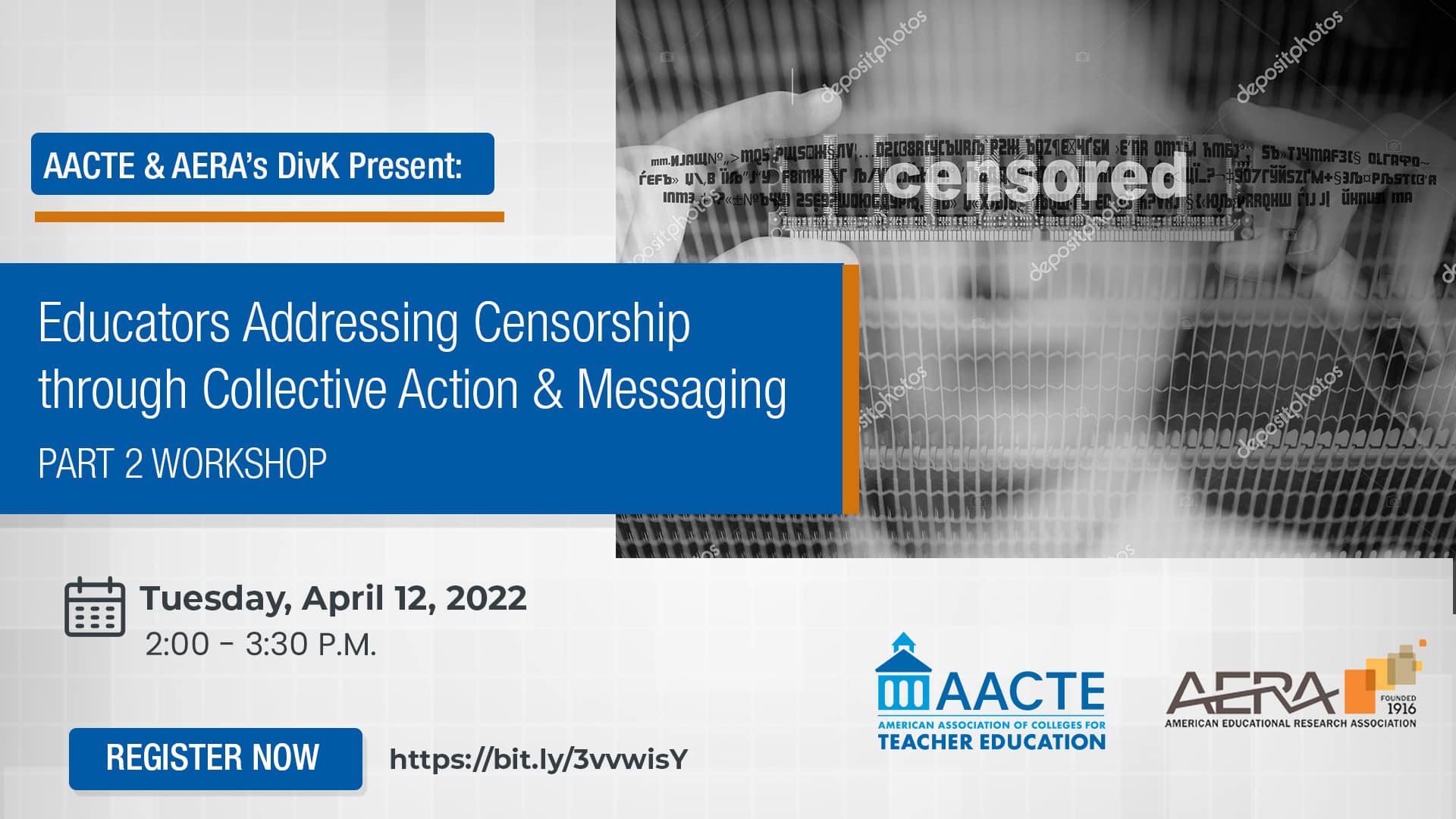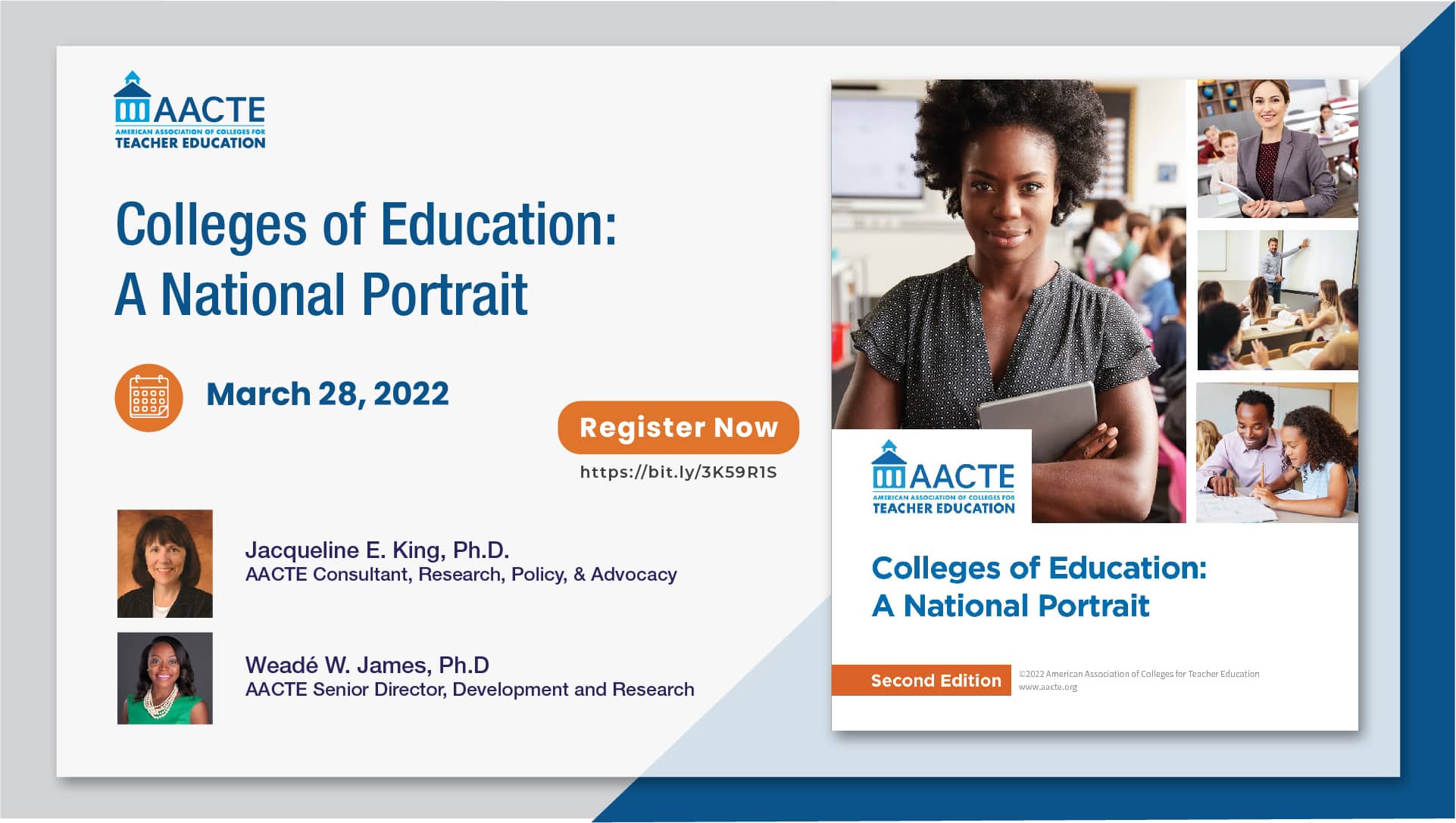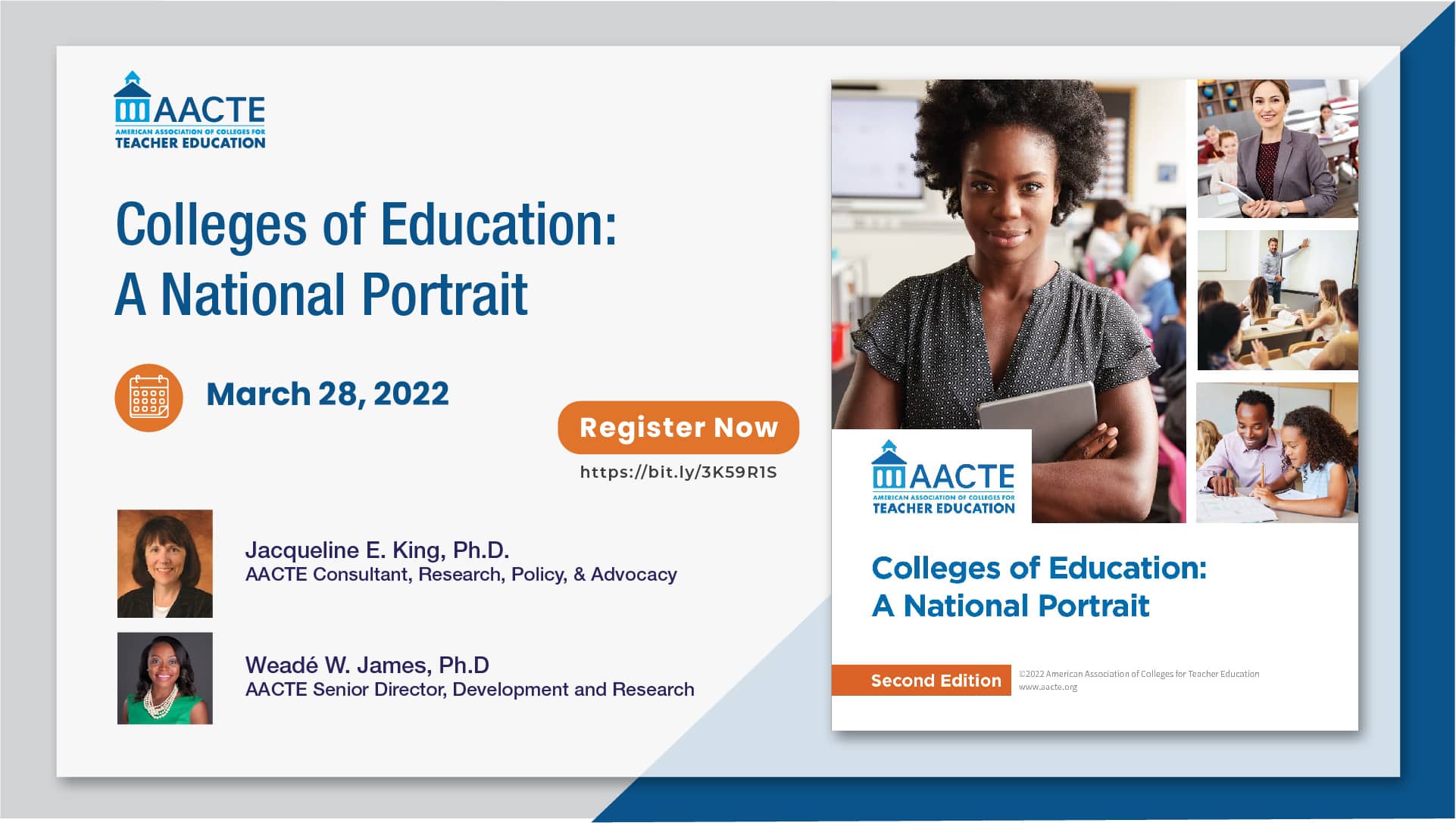18 Apr2022
By Ashley Kang
This article originally appeared on Syracuse University School of Education website and is reprinted with permission.
 Tiffany Hamm, a fourth-year science education doctoral student, formerly taught earth science in her hometown of Bronx, New York. She chose the School of Education to pursue a Ph.D. because she wanted to do more in the field. Making science accessible is key, she says, both in her pursuit of a doctorate and for the next generation.
Tiffany Hamm, a fourth-year science education doctoral student, formerly taught earth science in her hometown of Bronx, New York. She chose the School of Education to pursue a Ph.D. because she wanted to do more in the field. Making science accessible is key, she says, both in her pursuit of a doctorate and for the next generation.
“Bringing science back to the community in a tangible way can help students of color and students of underrepresented backgrounds gain interest,” Hamm says. “We need to keep showing different faces in science, keep diversifying the science field, and diversifying images of scientist and their contributions.”
05 Apr2022
By Thelma Quardey Missedja

The “Minority Serving Institutions as Drivers of Educational Equity” Deeper Dive session at this year’s Annual Meeting provided insight on the essential role minority serving institutions (MSIs) play in providing postsecondary access to students of color, preparing diverse educators for the workforce, and increasing the economic mobility of low-income, first-generation college students. The session focused on unique programs, supports, and partnerships that these institutions offer to attract and prepare diverse teachers. The panel for the session included deans from four MSI schools or colleges of Education: J. Fidel Turner (Clark Atlanta University), Chinaka DomNwachukwu (California State University-San Bernardino), Stephen Silverman (Florida Atlantic University), and Denelle Wallace Alexander (Norfolk State University).
04 Apr2022
By David Fuentes
This article was originally published in Teachers College Record and is reprinted with permission.
There are deeply ingrained structural inequalities in schools that require immediate action. As antiracist educators, we must ask questions about school equity to disrupt the inequality of school outcomes we continue to see today. Who teaches the students? Who gets new schools? Who graduates from high school, and who goes to college? Who gets labeled and sorted? What can (antiracist) educators do? These questions are profoundly antiracist because they are overwhelmingly multicultural. By asking profoundly antiracist questions about schools today, I highlight areas and issues of schooling that require immediate action, antiracist efforts, to address the inequalities that exist as evidenced by educational statistics. Based on the analysis of school outcomes presented in this research note, it becomes clear that Black, Indigenous, People of Color (BIPOC) students continue to experience disparate school outcomes in America. Such inequalities reveal that BIPOC children are taught by underpaid teachers, learn in schools that are falling apart, are labeled and sorted at disproportionate rates, and endure a curriculum about other people, and generally are being underserved in schools, as evidenced by the school outcomes. Educators must take immediate antiracist actions to ensure that school equity does not continue to be defined by racial inequality.
29 Mar2022
By Laura Mogelson
 I serve as the legislative liaison for the Minnesota Association of Colleges for Teacher Education (MACTE), a consortium of over 20 public and private institutions of higher education. We represent both urban and rural geographic regions and we range in size. In Minnesota, we are unique in that the governor is a democrat, the house is majority democrat, and the senate is majority republican.
I serve as the legislative liaison for the Minnesota Association of Colleges for Teacher Education (MACTE), a consortium of over 20 public and private institutions of higher education. We represent both urban and rural geographic regions and we range in size. In Minnesota, we are unique in that the governor is a democrat, the house is majority democrat, and the senate is majority republican.
Prior to the launch of the Minnesota legislative session, MACTE developed collaborative legislative priorities that guide our work with the legislature. This year our four main goals are 1) to maintain high quality teacher preparation standards and support initiatives that reflect the research base around teaching methodologies; 2) increase the diversity of the Minnesota teaching force through strategies to recruit, support, prepare, and retain teachers of color; 3) to improve the retention of teachers; and 4) to support high-quality research-based E-12 instructional practices. In my work as the liaison, I attend committee meetings and advocate our support (or opposition) to proposed legislation through written or oral testimony. I am often supported by our MACTE leadership, our faculty who are content area experts, and our teacher candidates.
28 Mar2022
By Nicole Dunn

As another Women’s History Month comes to an end, AACTE wants to acknowledge the achievements of women-identified leaders in educator preparation. The Association kicked off its celebration by asking you, AACTE members, to identify a leader who affected your work as an educator through their mentorship, research, and colleagueship. AACTE is honored to share those responses here and want to congratulate all women members for their contributions to their classrooms and the field each day.
Joan Rhodes, chair, Department of Teaching and Learning and associate professor, Virginia Commonwealth University School of Education
“Dr. Rhodes models skillful leadership and compassion. A transformational leader, she is responsive to the financial and structural needs of the larger institution, while prioritizing the human experience of faculty, staff, and students. She treats department members with dignity, soliciting feedback and input regularly. This collaborative approach led to adapting department practices. Voices previously unheard are now heard and respected. She quietly elevates and lifts all her colleagues and students, creating pathways to leadership roles for all members of the community. She makes me, a junior faculty member, feel seen, heard, and valued while I continue to develop my leadership skills.”
25 Mar2022
By Jacqueline Rodriguez and Nicole Dunn
 AACTE continues its collaboration with AERA’s Division K: Teaching and Teacher Education to produce an in-depth, scaffolded, three-part series of professional learning opportunities addressing the recent uptick in education censorship across the nation. The first presentation of the series took place as a Deeper Dive session during AACTE’s Annual Meeting in New Orleans. On April 12, AACTE and AERA Division K will co-host a workshop: Educators Addressing Censorship through Collective Action & Messaging, which will include members of our P-20 education system. The third session in our series is a Town Hall taking place during the AERA Conference in late April where Lynn Gangone, AACTE CEO and president will be moderating alongside AERA Executive Director, Felice Levine, and Division K Chair, Dorothea Anagnostopoulos.
AACTE continues its collaboration with AERA’s Division K: Teaching and Teacher Education to produce an in-depth, scaffolded, three-part series of professional learning opportunities addressing the recent uptick in education censorship across the nation. The first presentation of the series took place as a Deeper Dive session during AACTE’s Annual Meeting in New Orleans. On April 12, AACTE and AERA Division K will co-host a workshop: Educators Addressing Censorship through Collective Action & Messaging, which will include members of our P-20 education system. The third session in our series is a Town Hall taking place during the AERA Conference in late April where Lynn Gangone, AACTE CEO and president will be moderating alongside AERA Executive Director, Felice Levine, and Division K Chair, Dorothea Anagnostopoulos.
22 Mar2022
By Jacqueline E. King, Ph.D.
 The Colleges of Education: A National Portrait is AACTE’s signature report on schools, colleges, and departments of education. The second edition was released today and AACTE is hosting a webinar to review its findings on Monday, March 28 at 1:00 p.m. ET.
The Colleges of Education: A National Portrait is AACTE’s signature report on schools, colleges, and departments of education. The second edition was released today and AACTE is hosting a webinar to review its findings on Monday, March 28 at 1:00 p.m. ET.
This report is a major vehicle for AACTE to tell the story of colleges of education nationwide and for members to situate their own programs in the broader context of the trends that are shaping the profession. Education preparation program faculty are encouraged to use it to communicate with their institution’s leadership, PK-12 partners, and other key cnstituents about the issues, trends, and challenges impacting educator preparation.
This year, in addition to describing the work of colleges of education, the people who do that work, and the students they serve, the National Portrait includes a special analysis on the important contributions that community colleges make to educator preparation.
Join me and my co-author Weadé James on March 28 for this member-only, informative webinar. Register today.
22 Mar2022
By AACTE
 Today, AACTE (American Association of Colleges for Teacher Education) releases the second edition of Colleges of Education: A National Portrait. In addition to updating information on colleges of education and their leaders, faculty, and students, this edition features a special analysis on the contributions of community colleges to educator preparation.
Today, AACTE (American Association of Colleges for Teacher Education) releases the second edition of Colleges of Education: A National Portrait. In addition to updating information on colleges of education and their leaders, faculty, and students, this edition features a special analysis on the contributions of community colleges to educator preparation.
This update of AACTE’s signature report offers a comprehensive picture of the nation’s schools, colleges, and departments of education: the work that they do, the people who do that work, and the students they serve. The report describes the key trends and challenges in meeting the nation’s need for highly skilled educators.
Colleges and universities can benchmark their programs against peers, gain innovative ideas to grow and diversify enrollment through community college partnerships, and describe to stakeholders the challenges confronting educator preparation.
21 Mar2022
By Michael Rose
 The House of Representatives and Senate both recently passed resolutions condemning threats of violence against historically Black colleges and universities (HBCUs).
The House of Representatives and Senate both recently passed resolutions condemning threats of violence against historically Black colleges and universities (HBCUs).
Over the past several months, numerous bomb threats have been called in to HBCUs causing the colleges to cancel classes; disrupting campus environments; and increasing anxiety of students, faculty, and staff. At least 18 HBCUs received bomb threats on February 1, 2022, the first day of Black History Month. Unfortunately, to date no one individual or group has been found responsible for these reprehensible acts.
As the resolutions (H.Con.Res. 70/S.Res.534) note, HBCUs were established in response to discriminatory practices that excluded Black Americans from pursuing an education in the United States and they educate and produce a significant share of the nation’s Black leaders and innovators.
15 Mar2022
By Kaitlyn Brennan
 This weekly Washington Update is intended to keep members informed on Capitol Hill activities impacting the educator preparation community. The views expressed in this post do not necessarily reflect the views of AACTE.
This weekly Washington Update is intended to keep members informed on Capitol Hill activities impacting the educator preparation community. The views expressed in this post do not necessarily reflect the views of AACTE.
On the eve of the one-year anniversary of the passage of the American Rescue Plan Act, Congress passed a Fiscal Year (FY) 2022 Omnibus Spending Bill. The FY22 bill includes increases for education, but not nearly at the level that was originally requested by the Biden Administration. Considerable work lies ahead to secure a robust federal investment to support rebuilding and diversifying the special educator and specialized instructional personnel pipeline.
15 Mar2022
By Nicole Dunn

You may have heard the term “intersectionality” a lot lately, a term coined by Kimberlee Crenshaw in 1989 to describe how systems of oppression overlap to create distinct experiences for people with multiple identity categories. Those familiar with Crenshaw’s work know that the term was once used academically purely to shape legal conversations about racial and social injustice in systems, most notably policing. Now, “intersectionality” is part of the national lexicon, being used in the forefront of the country’s debates around racial and social injustice in the last few years; however, that should not dissuade educators from looking at their work through this lens.
For educators, intersectionality is used to frame the experiences of historical and current figures who have multiple identities when they teach. For example, during Women’s History Month, it’s important for educators to consider how the experiences of women of color, queer and trans women, women with disabilities, women with different body types, and multi-lingual women differ, and then represent them as such in their curriculum. Educators can build this intersectional teaching muscle by having conversations about their diverse experiences with one another and, as teachers, share research and resources that elevate the truth of women with intersectional identities in our schools. This is why, on International Women’s Day, we asked several of our members and staff to answer the question:
Why is integrating women’s history through an intersectional lens important to you and your work in education?
08 Mar2022
By Nicole Dunn

AACTE launches it celebration of 2022 Women’s History Month on International Women’s Day with a blog on the “herstory” of women leaders in education preparation. To help AACTE celebrate women leaders in the profession, please nominate a women-identified leader in educator preparation whom you would like us to recognize in Ed Prep Matters before the month ends.
The term “herstory” was coined in 1970 by Robin Morgan, editor of Sisterhood is Powerful, An Anthology of Writings from the Women’s Liberation Movement. It is used today to acknowledge the way in which women have been left out of our historical narratives. Most schools teach history through the lens of America’s default norms: white, cisgendered, and male. AACTE is committed to supporting its membership with their efforts to prepare candidates to equitably represent intersectional female narratives across disciplines.
08 Mar2022
By Jacqueline E. King, Ph.D.
 AACTE will soon release the second edition of its signature report, Colleges of Education: A National Portrait. In addition to updating information on colleges of education and their leaders, faculty, and students, this edition features a special analysis on the contributions that community colleges make to educator preparation. Topics to be covered will include:
AACTE will soon release the second edition of its signature report, Colleges of Education: A National Portrait. In addition to updating information on colleges of education and their leaders, faculty, and students, this edition features a special analysis on the contributions that community colleges make to educator preparation. Topics to be covered will include:
- Scope of educator preparation in the U.S.
- Trends in undergraduate and graduate degrees conferred in education
- Demographics of leaders and faculty
- Student demographics
- Contributions of community colleges to educator preparation
22 Feb2022
By Anthony Pittman and Anthony Broughton
This post is part of AACTE’s Black History Month 2022 Blog series.
 Claflin University is pleased to have been invited by AACTE to help celebrate Black History Month. Founded in 1869, primarily to educate freed slaves, Claflin was the first historically Black college/University (HBCU) in South Carolina to open its doors to all people – regardless of race, class, gender, and/or any of the other social constructs that have been divisive across many components of society. For over 150 years, Claflin has remained committed to her mission, one in which diversity and inclusion are central to the development of visionary leaders and scholars in their chosen fields of study. At Claflin, our belief is that our graduates will make their marks on the world by leading innovative changes in various industries and professions across the globe.
Claflin University is pleased to have been invited by AACTE to help celebrate Black History Month. Founded in 1869, primarily to educate freed slaves, Claflin was the first historically Black college/University (HBCU) in South Carolina to open its doors to all people – regardless of race, class, gender, and/or any of the other social constructs that have been divisive across many components of society. For over 150 years, Claflin has remained committed to her mission, one in which diversity and inclusion are central to the development of visionary leaders and scholars in their chosen fields of study. At Claflin, our belief is that our graduates will make their marks on the world by leading innovative changes in various industries and professions across the globe.
 Claflin University is located in the small city of Orangeburg, South Carolina and is affiliated with the United Methodist Church. It is accredited by the Southern Association of Colleges and Schools Commission on Colleges (SACSCOC) and approved by the University Senate of the United Methodist Church. Among her numerous accolades, Claflin is ranked the #1 HBCU in the state, and for its 11th consecutive year, the University is in U.S. News & World Report’s “Top 10 of the Nation’s Best HBCUs.” As the oldest HBCU in the state of South Carolina, Claflin University’s commitment to teacher eucation has been consistently strong since its founding. She has produced teachers, principals, superintendents, and numerous other educational professionals who have made significant contributions to the myriad classrooms and other educational contexts within the state of SC and indeed across the United States and the world at large.
Claflin University is located in the small city of Orangeburg, South Carolina and is affiliated with the United Methodist Church. It is accredited by the Southern Association of Colleges and Schools Commission on Colleges (SACSCOC) and approved by the University Senate of the United Methodist Church. Among her numerous accolades, Claflin is ranked the #1 HBCU in the state, and for its 11th consecutive year, the University is in U.S. News & World Report’s “Top 10 of the Nation’s Best HBCUs.” As the oldest HBCU in the state of South Carolina, Claflin University’s commitment to teacher eucation has been consistently strong since its founding. She has produced teachers, principals, superintendents, and numerous other educational professionals who have made significant contributions to the myriad classrooms and other educational contexts within the state of SC and indeed across the United States and the world at large.
22 Feb2022
Driving the National Conversation to Recruit, Sustain, and Retain Diverse Teaching Candidates
By Amanda Morales
 The AACTE Diversified Teacher Workforce Topical Action Group (TAG) will convene Pk-20 practitioners, researchers, and community stakeholders to discuss how to bolster collective efforts to recruit, sustain and retain teachers of color. The preconference event will take place on Thursday, March 3 at the Sheraton New Orleans Hotel, Grand Ballroom B, 9:00 a.m. – 3:30 p.m.
The AACTE Diversified Teacher Workforce Topical Action Group (TAG) will convene Pk-20 practitioners, researchers, and community stakeholders to discuss how to bolster collective efforts to recruit, sustain and retain teachers of color. The preconference event will take place on Thursday, March 3 at the Sheraton New Orleans Hotel, Grand Ballroom B, 9:00 a.m. – 3:30 p.m.
Across the field of education (PK-20) students, teachers, administrators, teacher educators/professors, and program leaders continue to witness and lament the chronic disparities in representation and lack of ethno-racial and linguistic diversity among teachers (relative to their students) in our nation’s schools. And in the wake of a global pandemic, enduring civil unrest, the impending mass teacher exodus, and calls for racial justice related to systemic anti-Black, anti-Asian and anti-immigrant sentiments within all aspects of society, educational institutions are being forced to engage in introspection with greater magnitude. Teacher preparation programs in particular are feeling increased pressure to recruit, retain and effectively prepare a highly-qualified, racially-literate, and ethno-racially diverse pool of candidates as districts scramble to hire teachers with the content knowledge and pedagogical skills as well as the cultural and linguistic competencies needed to meet the needs of today’s students.
 Tiffany Hamm, a fourth-year science education doctoral student, formerly taught earth science in her hometown of Bronx, New York. She chose the School of Education to pursue a Ph.D. because she wanted to do more in the field. Making science accessible is key, she says, both in her pursuit of a doctorate and for the next generation.
Tiffany Hamm, a fourth-year science education doctoral student, formerly taught earth science in her hometown of Bronx, New York. She chose the School of Education to pursue a Ph.D. because she wanted to do more in the field. Making science accessible is key, she says, both in her pursuit of a doctorate and for the next generation.







 I serve as the legislative liaison for the Minnesota Association of Colleges for Teacher Education (MACTE), a consortium of over 20 public and private institutions of higher education. We represent both urban and rural geographic regions and we range in size. In Minnesota, we are unique in that the governor is a democrat, the house is majority democrat, and the senate is majority republican.
I serve as the legislative liaison for the Minnesota Association of Colleges for Teacher Education (MACTE), a consortium of over 20 public and private institutions of higher education. We represent both urban and rural geographic regions and we range in size. In Minnesota, we are unique in that the governor is a democrat, the house is majority democrat, and the senate is majority republican.
 AACTE continues its collaboration with AERA’s Division K: Teaching and Teacher Education to produce an in-depth, scaffolded, three-part series of professional learning opportunities addressing the recent uptick in education censorship across the nation. The first presentation of the series took place as a Deeper Dive session during AACTE’s Annual Meeting in New Orleans. On April 12, AACTE and AERA Division K will co-host a workshop:
AACTE continues its collaboration with AERA’s Division K: Teaching and Teacher Education to produce an in-depth, scaffolded, three-part series of professional learning opportunities addressing the recent uptick in education censorship across the nation. The first presentation of the series took place as a Deeper Dive session during AACTE’s Annual Meeting in New Orleans. On April 12, AACTE and AERA Division K will co-host a workshop:  The Colleges of Education: A National Portrait is AACTE’s signature report on schools, colleges, and departments of education. The
The Colleges of Education: A National Portrait is AACTE’s signature report on schools, colleges, and departments of education. The  Today, AACTE (American Association of Colleges for Teacher Education) releases the second edition of Colleges of Education: A National Portrait. In addition to updating information on colleges of education and their leaders, faculty, and students, this edition features a special analysis on the
Today, AACTE (American Association of Colleges for Teacher Education) releases the second edition of Colleges of Education: A National Portrait. In addition to updating information on colleges of education and their leaders, faculty, and students, this edition features a special analysis on the  The House of Representatives and Senate both recently passed resolutions condemning threats of violence against historically Black colleges and universities (HBCUs).
The House of Representatives and Senate both recently passed resolutions condemning threats of violence against historically Black colleges and universities (HBCUs).  This weekly Washington Update is intended to keep members informed on Capitol Hill activities impacting the educator preparation community. The views expressed in this post do not necessarily reflect the views of AACTE.
This weekly Washington Update is intended to keep members informed on Capitol Hill activities impacting the educator preparation community. The views expressed in this post do not necessarily reflect the views of AACTE. 
 AACTE will soon release the second edition of its signature report, Colleges of Education: A National Portrait. In addition to updating information on colleges of education and their leaders, faculty, and students, this edition features a special analysis on the contributions that community colleges make to educator preparation. Topics to be covered will include:
AACTE will soon release the second edition of its signature report, Colleges of Education: A National Portrait. In addition to updating information on colleges of education and their leaders, faculty, and students, this edition features a special analysis on the contributions that community colleges make to educator preparation. Topics to be covered will include: Claflin University is pleased to have been invited by AACTE to help celebrate Black History Month. Founded in 1869, primarily to educate freed slaves, Claflin was the first historically Black college/University (HBCU) in South Carolina to open its doors to all people – regardless of race, class, gender, and/or any of the other social constructs that have been divisive across many components of society. For over 150 years, Claflin has remained committed to her mission, one in which diversity and inclusion are central to the development of visionary leaders and scholars in their chosen fields of study. At Claflin, our belief is that our graduates will make their marks on the world by leading innovative changes in various industries and professions across the globe.
Claflin University is pleased to have been invited by AACTE to help celebrate Black History Month. Founded in 1869, primarily to educate freed slaves, Claflin was the first historically Black college/University (HBCU) in South Carolina to open its doors to all people – regardless of race, class, gender, and/or any of the other social constructs that have been divisive across many components of society. For over 150 years, Claflin has remained committed to her mission, one in which diversity and inclusion are central to the development of visionary leaders and scholars in their chosen fields of study. At Claflin, our belief is that our graduates will make their marks on the world by leading innovative changes in various industries and professions across the globe. Claflin University is located in the small city of Orangeburg, South Carolina and is affiliated with the United Methodist Church. It is accredited by the Southern Association of Colleges and Schools Commission on Colleges (SACSCOC) and approved by the University Senate of the United Methodist Church. Among her numerous accolades, Claflin is ranked the #1 HBCU in the state, and for its 11th consecutive year, the University is in U.S. News & World Report’s “Top 10 of the Nation’s Best HBCUs.” As the oldest HBCU in the state of South Carolina, Claflin University’s commitment to teacher eucation has been consistently strong since its founding. She has produced teachers, principals, superintendents, and numerous other educational professionals who have made significant contributions to the myriad classrooms and other educational contexts within the state of SC and indeed across the United States and the world at large.
Claflin University is located in the small city of Orangeburg, South Carolina and is affiliated with the United Methodist Church. It is accredited by the Southern Association of Colleges and Schools Commission on Colleges (SACSCOC) and approved by the University Senate of the United Methodist Church. Among her numerous accolades, Claflin is ranked the #1 HBCU in the state, and for its 11th consecutive year, the University is in U.S. News & World Report’s “Top 10 of the Nation’s Best HBCUs.” As the oldest HBCU in the state of South Carolina, Claflin University’s commitment to teacher eucation has been consistently strong since its founding. She has produced teachers, principals, superintendents, and numerous other educational professionals who have made significant contributions to the myriad classrooms and other educational contexts within the state of SC and indeed across the United States and the world at large. The AACTE Diversified Teacher Workforce Topical Action Group (TAG) will convene Pk-20 practitioners, researchers, and community stakeholders to discuss how to bolster collective efforts to recruit, sustain and retain teachers of color. The preconference event will take place on Thursday, March 3 at the Sheraton New Orleans Hotel, Grand Ballroom B, 9:00 a.m. – 3:30 p.m.
The AACTE Diversified Teacher Workforce Topical Action Group (TAG) will convene Pk-20 practitioners, researchers, and community stakeholders to discuss how to bolster collective efforts to recruit, sustain and retain teachers of color. The preconference event will take place on Thursday, March 3 at the Sheraton New Orleans Hotel, Grand Ballroom B, 9:00 a.m. – 3:30 p.m.